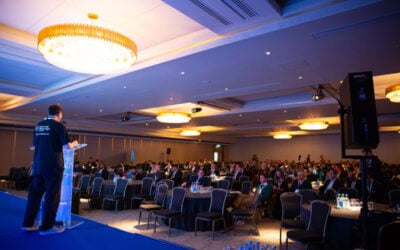
The Federal Court of Justice in Germany has rejected an appeal against BESS being eligible for the BKZ construction fee, a decision which means potentially millions more in costs for building projects in the country.
The Baukostenzuschuss (BKZ) is a fee that any resource which can draw a substantial amount of power from the grid must pay grid operators – distribution system operators (DSOs) or transmission system operators (TSOs) – before or during construction to compensate for the construction of the needed infrastructure.
That includes battery energy storage system (BESS) projects but not generation-only resources like coal, gas or renewables. The tariff can be as high as €140,000 (US$162,800) per MW and requires early downpayments which can prove debilitating for small developers, though it can be lower or not applied to BESS by some of Germany’s 866 DSOs.
A court case was brought against a DSO for its inclusion of BESS by industry stakeholders, who argued that BESS assets are more comparable to those legacy power plants and BESS’ load patterns are not like conventional consumer demand.
Try Premium for just $1
- Full premium access for the first month at only $1
- Converts to an annual rate after 30 days unless cancelled
- Cancel anytime during the trial period
Premium Benefits
- Expert industry analysis and interviews
- Digital access to PV Tech Power journal
- Exclusive event discounts
Or get the full Premium subscription right away
Or continue reading this article for free
However, the Federal Court of Justice (Bundesgerichtshof or BGH) yesterday issued its ‘Resolution of 15 July 2025 – EnVR 1/24’ on the matter, upholding the inclusion of BESS technology in the BKZ.
The Court acknowledge the validity of the above argument, but concluded: “However, the equal treatment of grid-connected battery storage systems and other end consumers is nevertheless objectively justified given the spirit and purpose of the construction cost subsidy. The grid operator obliged to connect has discretion in this regard.” (Read the full decision, in German, here.)
Although not named in the decision, the case is most likely that brought by developer Kyon Energy, one of the key players in Germany’s recent grid-scale BESS market boom, part of oil and gas major TotalEnergies.
The topic and court case were discussed by Kyon’s head of business development and regulatory affairs Benedikt Deuchert, along with other developers, on a panel at Solar Media’s inaugural Energy Storage Summit Germany last month.
The BKZ has not prevented development activity in the German grid-scale market from soaring in the past few years, and it is set to be Europe’s largest BESS market by some distance. But developers say the fee is holding the industry back from realising its full potential.
Posting on LinkedIn today, system integrator Fluence’s director for marketing, policy and public affairs EMEA Lars Stephen said there was a potential silver lining: “In the ruling the BGH stated, that the levying of the BKZ based on the 2009 position paper of the regulator is legal. Based on this position paper, the TSO/DSO CAN levy BKZ, but does not have to.”
Note the BKZ is an entirely separate fee to operational grid fees for charging and discharging. BESS is currently exempt from these until 2029, with a long-term resolution being discussed: the Bundesnetzagentur, which regulates industry in Germany, issued a whitepaper on the topic in May.





